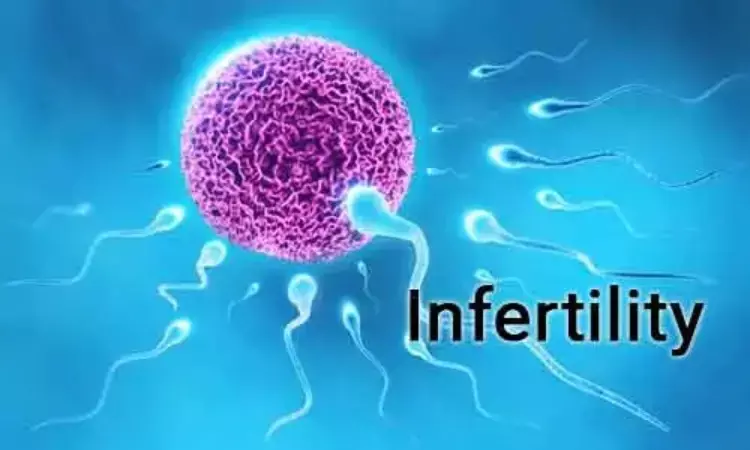- Home
- Medical news & Guidelines
- Anesthesiology
- Cardiology and CTVS
- Critical Care
- Dentistry
- Dermatology
- Diabetes and Endocrinology
- ENT
- Gastroenterology
- Medicine
- Nephrology
- Neurology
- Obstretics-Gynaecology
- Oncology
- Ophthalmology
- Orthopaedics
- Pediatrics-Neonatology
- Psychiatry
- Pulmonology
- Radiology
- Surgery
- Urology
- Laboratory Medicine
- Diet
- Nursing
- Paramedical
- Physiotherapy
- Health news
- Fact Check
- Bone Health Fact Check
- Brain Health Fact Check
- Cancer Related Fact Check
- Child Care Fact Check
- Dental and oral health fact check
- Diabetes and metabolic health fact check
- Diet and Nutrition Fact Check
- Eye and ENT Care Fact Check
- Fitness fact check
- Gut health fact check
- Heart health fact check
- Kidney health fact check
- Medical education fact check
- Men's health fact check
- Respiratory fact check
- Skin and hair care fact check
- Vaccine and Immunization fact check
- Women's health fact check
- AYUSH
- State News
- Andaman and Nicobar Islands
- Andhra Pradesh
- Arunachal Pradesh
- Assam
- Bihar
- Chandigarh
- Chattisgarh
- Dadra and Nagar Haveli
- Daman and Diu
- Delhi
- Goa
- Gujarat
- Haryana
- Himachal Pradesh
- Jammu & Kashmir
- Jharkhand
- Karnataka
- Kerala
- Ladakh
- Lakshadweep
- Madhya Pradesh
- Maharashtra
- Manipur
- Meghalaya
- Mizoram
- Nagaland
- Odisha
- Puducherry
- Punjab
- Rajasthan
- Sikkim
- Tamil Nadu
- Telangana
- Tripura
- Uttar Pradesh
- Uttrakhand
- West Bengal
- Medical Education
- Industry
Adherence to AHA diet pattern may reduce pregnancy loss during infertility treatment: JAMA

USA: Adherence to preconception healthy dietary patterns may be associated with a lower likelihood of pregnancy loss during the course of infertility treatment, a cohort study has found. The findings were published online in JAMA Network Open on August 18, 2023.
"Adhering to the American Heart Association (AHA) dietary pattern was inversely tied to total and clinical pregnancy loss in women who achieved pregnancy during the course of infertility treatment with IVF or IUI," the researchers wrote in their study.
The study aimed to examine the connection between various dietary patterns and outcomes of infertility treatment.
The research, led by Albert Salas-Huetos, MSc, PhD, from institutions including the Harvard T. H. Chan School of Public Health and the Pere Health Research Institute at Rovira I Virgili University, followed 612 women (median age: 35 years; 82.8% white) undergoing infertility treatment at an academic medical center in Boston. The treatments included both intrauterine insemination cycles and in vitro fertilization, with or without intracytoplasmic sperm injection.
Participants' pre-treatment diets were evaluated using a validated food frequency questionnaire, and adherence to eight predefined dietary patterns was assessed. These patterns included the Trichopoulou Mediterranean diet, alternate Mediterranean diet, Panagiotakos Mediterranean diet, Healthy Eating Index, Alternate Healthy Eating Index, AHA index, Dietary Approaches to Stop Hypertension (DASH) index, and plant-based diets.
The study findings revealed no significant associations between adherence to any of the eight dietary patterns and the likelihood of achieving clinical pregnancy or live birth through infertility treatment. However, a notable inverse association was observed between adherence to the AHA dietary pattern and the risks of both total and clinical pregnancy loss.
For pregnancies that were conceived during infertility treatment, the adjusted probability of total pregnancy loss was 0.41 in the lowest quartile of AHA dietary pattern adherence, compared to 0.28 in the highest quartile (P = .02). Similarly, the adjusted probability of clinical pregnancy loss was 0.30 in the lowest quartile, compared to 0.15 in the highest quartile (P = .007).
These results suggest that following the AHA dietary pattern, characterized by heart-healthy choices, may confer benefits for women undergoing infertility treatment, particularly in reducing the risk of pregnancy loss. However, the study highlighted that more research is needed in this area due to the limited existing literature on the association between nutrition and infertility treatment outcomes. The study's findings could pave the way for designing further studies to explore the effects of nutritional interventions on fertility outcomes.
Reference:
Salas-Huetos A, et al. JAMA Netw Open. 2023;doi:10.1001/jamanetworkopen.2023.29982.
Dr Kamal Kant Kohli-MBBS, DTCD- a chest specialist with more than 30 years of practice and a flair for writing clinical articles, Dr Kamal Kant Kohli joined Medical Dialogues as a Chief Editor of Medical News. Besides writing articles, as an editor, he proofreads and verifies all the medical content published on Medical Dialogues including those coming from journals, studies,medical conferences,guidelines etc. Email: drkohli@medicaldialogues.in. Contact no. 011-43720751


